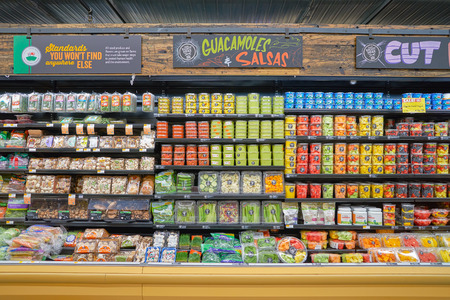

The recent announcement that Amazon is to acquire Whole Foods Market for $13.7 billion is forecast to be a major disruption within the US grocery retail market. Some industry commentators say large competitors like Walmart, Kroger and Costco will feel the effects of Amazon ratcheting up its presence in US grocery. Other say middle tier grocers will feel the burn as Whole Foods will likely become more price competitive.
While no one can yet predict the final effects, it is generally agreed that e-commerce in US grocery retail is set to fast forward. E-commerce accounts for approx. 1% – 2% of the $800 billion U.S. grocery retail sector. But pointing to e-commerce accounting for 5% of grocery sales in the UK (thought to be 8% in London), analysts estimate the US market has the potential to reach 10% ie $80 billion at today’s value.
Statista forecasts that Amazon will sell over $23 billion of grocery product by 2021. It currently sells groceries via Amazon Prime Pantry and Amazon Fresh. Some suggest Amazon’s purchase of Whole Foods is a defensive response to Walmart’s e-commerce investments (including their purchase of jet.com less than a year ago).
How else might the Amazon Whole Foods deal benefit each other? Amazon will get an established national grocery distribution network of 400+ Whole Foods stores and depots. Plus a well-regarded and trusted brand. Whole Foods which has turned in lack luster sales performance of late, should benefit from Amazon’s technological capabilities, particularly customer data acquisition and analysis.
But what might the implications be for WFM suppliers? For now, it is largely business as usual. Whole Foods are still migrating towards more centralized buying out of their Austin Texas HQ for larger national brands. But they are thought to be working up an approach for smaller/regional brands so the 11 Whole Foods regions have their own character and reflect local and regional tastes.
There are some who believe that with Amazon’s support Whole Foods could re-fire their aggressive expansion plans – 1,000+ stores. Which may be behind Whole Foods’ co-founder and CEO John Mackey saying last month that most WFM suppliers ‘can expect to see increased business with us over time’. Bord Bia will continue to monitor this development and assess opportunities for new Irish supply.
For further information contact Karen.coyle@bordbia.ie












